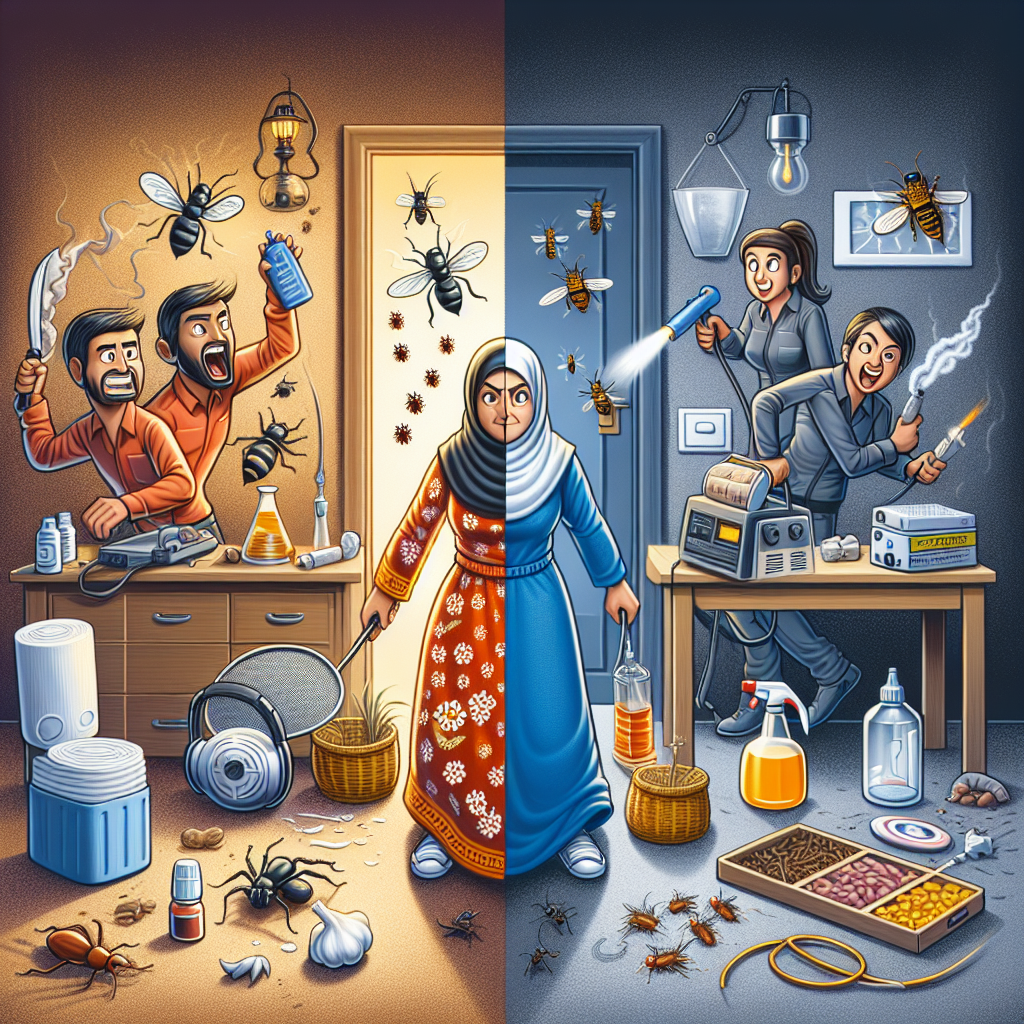Pest control is an essential aspect of maintaining a safe and healthy environment, whether in our homes, offices, or gardens. However, with the wealth of information (and misinformation) available today, it can be challenging to distinguish between myths and realities. In this article, we’ll delve into common pest control myths, debunk the myths, and equip you with factual knowledge to keep your space pest-free.
Understanding Pest Control Myths
Pest control myths arise from misunderstandings, outdated information, or simply a lack of knowledge. These myths can lead to ineffective treatment and unnecessary panic. Let’s take a closer look at some widespread misconceptions about pest control.
Myth 1: All Pest Control Products Are Harmful
One of the most prevalent myths is that all pest control products are hazardous to humans and pets. While it’s true that certain pest control methods contain chemicals that can be toxic, many modern pest control solutions are designed with safety in mind. Homeowners can find various eco-friendly and organic alternatives that are not only effective but also safe for use around children and pets. Always read labels and opt for products with proven safety records.
Myth 2: You Only Need Pest Control in the Spring and Summer
Many people believe that pest control is only necessary during the warmer months. While it’s true that certain pests like mosquitoes and ants become more active in the spring and summer, others, such as rodents and termites, can invade homes at any time of the year. Regular pest control inspections are vital for prevention and early detection, ensuring your home remains pest-free around the clock.
Myth 3: Natural Remedies Always Work
It can be tempting to resort to DIY methods and natural remedies to control pests. While some natural solutions, such as vinegar and essential oils, can be effective for minor infestations, they often lack the potency needed for extensive pest issues. In cases of severe infestations, professional pest control services are invaluable for their expertise and access to the most effective treatments.
Debunking Common Pest Control Myths
Myth 4: If You Don’t See Pests, You Don’t Have Them
Many believe that not seeing pests means they are not present. However, this is a dangerous myth. Many pests, such as termites and bed bugs, can thrive without being detected for long periods. Regular inspections and proactive pest control are crucial to catching infestations before they escalate.
Myth 5: Pest Control is Just for Homeowners
Another misconception is that pest control services are only necessary for homeowners. Renters often underestimate the importance of pest control, thinking it’s the responsibility of landlords. However, pests do not discriminate, and tenants should also take active measures to prevent pest problems. Regular communication with landlords regarding pest issues can help maintain a pest-free environment for all occupants.
Myth 6: Professional Pest Control is Too Expensive
Many individuals shy away from hiring professional pest control services due to perceived high costs. However, neglecting to address pest issues can lead to more significant problems that are costlier to fix in the long run. Investing in professional services can save you money, protect your property value, and ensure the safety of your living space.
Best Practices for Effective Pest Control
1. Regular Inspections
Conduct regular checks of your home, garden, and any vulnerable areas. Look for signs of pest activity, such as droppings, damage, or nests.
2. Keep a Clean Environment
Maintaining a clean home is one of the best deterrents against pests. Ensure that food is stored properly, waste is disposed of, and clutter is minimized.
3. Seek Professional Help
When in doubt or faced with a severe infestation, contacting professional pest control services is always a wise choice. They have the experience, tools, and knowledge to handle pest issues effectively.
4. Educate Yourself
Stay informed about common pests in your area, proper pest prevention methods, and the latest developments in pest control products. Knowledge is power when it comes to pest control.
Conclusion
Separating pest control facts from fiction is essential for maintaining a healthy living environment. By debunking these common myths and following best practices, you can take proactive steps to protect your home from unwanted critters. Remember, when faced with uncertainty regarding pest control, reaching out for professional assistance is often the best route to take. Your peace of mind—and your home—are worth it.


